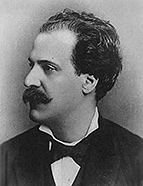

It was through these various organisations that colonial geographical knowledge expanded, with Luciano Cordeiro playing a pivotal role in all of them.
"Intervention" is perhaps the word that best captures Luciano Cordeiro's personality and approach to life. He was a member of thirty-eight scientific, literary, and artistic organisations around the world and collaborated with eighteen charitable institutions. Throughout his career, he was actively involved in national politics, serving in Parliament and holding numerous senior positions in the civil service, many of which were at senior management level. He also used writing, both in newspapers and books, as platforms to promote the ideals he fought for. Some of his writings were initially published in periodicals before being compiled into books.
What were the ideals Luciano Cordeiro fought for? First and foremost, patriotism. At a time when intellectuals like Oliveira Martins and Ramalho Ortigão noted the absence of a true national sentiment among the Portuguese, many of Cordeiro's historical writings aimed to underscore the centuries-old uniqueness of Portugal, which had asserted itself through marriages and alliances with prominent European nobility. Cordeiro emphasised Portugal's ties to the peoples of Northern Europe, viewing these relationships as essential to the country’s national identity. His historiography was fundamentally positivist, with a strong emphasis on documents, including epigraphs. On the other hand, he strongly opposed those who supported the ideas of Iberism, believing that, since Portugal had been a distinct nation from the other Iberian kingdoms since its independence, there was no reason to integrate it into a union encompassing the entire peninsula.
